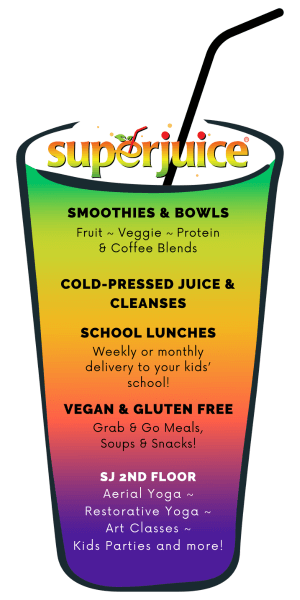
According to Natural Sleep Foundation, this is the recommended sleep average by age:
-Newborns (0-3 months) - 14-17 hours each day
-Infants (4-11 months) - 12-15 hours
-Toddlers (1-2 years) - 11-14 hours
-Preschoolers (3-5) - 10-13 hours
-School age children (6-13): - 9-11 hours
-Teenagers (14-17) - 8-10 hours
-Younger adults (18-25) - 7-9 hours
-Adults (26-64) - 7-9 hours
-Older adults (65+) - 7-8 hours
-Infants (4-11 months) - 12-15 hours
-Toddlers (1-2 years) - 11-14 hours
-Preschoolers (3-5) - 10-13 hours
-School age children (6-13): - 9-11 hours
-Teenagers (14-17) - 8-10 hours
-Younger adults (18-25) - 7-9 hours
-Adults (26-64) - 7-9 hours
-Older adults (65+) - 7-8 hours
Sleep is a vital indicator of overall health and well-being. We spend up to one-third of our lives asleep, and the overall state of our "sleep health" remains an essential question throughout our lifespan. Most of us know that getting a good night’s sleep is important, but too few of us actually make those eight or so hours between the sheets a priority. For many of us with sleep debt, we’ve forgotten what “being really, truly rested” feels like” (Natural Sleep Foundation, n.d.).
Let's look at 10 natural and effective ways to get the sleep you need.
Let's look at 10 natural and effective ways to get the sleep you need.
- Diet: Dr. Axe, a naturopathic doctor, and nutritionist believes that diet is crucial when it comes to sleep deprivation. He argues that consuming sugars and carbohydrates before bed can increase the body’s temperature to burn those sugars off, which is disruptive to sleep. He advises limiting these carb-rich foods several hours before bed for optimal sleep.
Healthy fats, like avocado or sugar-free yogurt, are great choices for late-night eating because they are high in relaxation inducing nutrients, such as magnesium and potassium. There are also some great beverages that can provide these helpful nutrients!
Sleep Naturally Here are 4 nutritious and delicious drink recipes that can help you get the rest you need:
Banana Tea is rich in both magnesium and potassium:
https://mommypotamus.com/banana-tea-for-sleep/
Pink Moon Milk, or tart cherry juice, is a natural source of melatonin.
https://heartbeetkitchen.com/2017/recipes/pink-moon-milk-sleep-tonic/
Chamomile Lavender Latte includes powerful and natural relaxants.
https://helloglow.co/chamomile-lavender-latte/
Turmeric Golden Milk is great for inflammation and balancing blood sugar.
https://www.theawesomegreen.com/turmeric-golden-milk-for-a-better-sleep/
Foods to Avoid
While there are plenty of things that help induce sleep, it is also important to consider what to avoid when treating insomnia. When looking to make changes for better sleep, it is important that we assess what may affect our sleep quality and cause restlessness. Here is a list, from Medical Daily online, of some things to avoid before bed for the best chance at a good night’s rest:
~Spicy foods
~Greasy foods, such as fast food
~Meats and cheeses
~Alcohol
~Caffeine
~Nicotine
~Dark chocolate
~Sugars or carbohydrate - Routine: A routine is an essential element when considering a healthy sleep pattern. Setting and following a sleep schedule can help increase the likelihood of falling and staying asleep.
The National Sleep Organization recommends.....
~Setting a consistent bedtime and a wake-up time. If you are a night owl, the suggestion is to slowly subtract 15 minutes a night to your regular sleep time until you reach your bedtime goal.
~As for getting up, hands off that snooze button! It is important to rise at the same time each day without the fallback of the alarm. The idea is that you get used to the wake-up time, without interruption. - Exercise: The Natural Sleep Foundation lists exercise as a way to combat insomnia. They explain that “exercise triggers an increase in body temperature and the post-exercise drop in temperature may promote falling asleep.
Exercise may also reduce insomnia by decreasing arousal, anxiety, and depressive symptoms. Insomnia is commonly linked with elevated arousal, anxiety, and depression, and exercise has strong effects on reducing these symptoms in the general population.
Exercises related to better sleep include:
-Aerobic
-Strength training
-Yoga Try incorporating these activities well before bedtime for the best results. Learn more about Yoga for better sleep here. - Breathe: Dr. Axe, naturopath, and nutritionist, list stress as one of the leading causes of insomnia. In turn, by reducing stress, adequate sleep is possible. One way to reduce stress, says Dr. Axe, is being mindful of breath. “Slow, deep breathing actually helps the body override the sympathetic system, which controls our fight-or-flight response, and lets the parasympathetic system — which controls our ability to relax — take the wheel instead. When you practice deep breathing while in bed, you’re giving the body permission to quit being on high alert and, instead, to relax” (Dr. Axe).
- Mantras: Meditation is a great way to work on breath and to focus on the centering of the body, which also helps to relieve anxieties and stress. The Daily Meditation suggests trying some mantras in the evening to help fall asleep. A mantra is a phrase or sounds repeated over and over to soothe and relax the mind. Here are some that The Daily Meditation recommends:
-“I am calm and still.”
-“The world is sleeping, and all is well.”
-“I welcome sleep into my being.”
-“I am breathing deeply and calmly, becoming more and more relaxed with each breath.”
For the best results, repeat one of your choosing 20 times or until you begin to feel more relaxed. - Technology: “Our cell phones, tablets, computers, and other electronic gadgets have become such a huge part of our daily lives that it’s often hard to put them down—even at bedtime. Keeping your phone on your nightstand may not seem like a big deal, but technology affects your sleep in more ways than you realize. Whether you’re surfing the web, playing a video game, or using your phone as an alarm clock in the late evening, you’re probably keeping yourself from a restful night” (National Sleep Foundation, n.d.). National Sleep Foundation warns gadget users of the ill effects of late-night phone, computer and tablet use on sleep. The blue light from these gadgets suppresses natural occurring melatonin, a hormone responsible for regulating your sleep cycle. Gadgets also keep the brain alert, not something we want when trying to get to sleep.
The solution: Limit gadget use in bed or close to bedtime. - Sound Sleep: For some, noise is necessary for falling asleep, which is why many people turn to watching TV in bed. But a proper noise machine is a great alternative to the distraction of TV and is a more soothing way to lead to sleep. Many options include sleep-inducing sounds such as white noise, ocean waves, waterfalls, rainforests, and rivers.
Here is a sample of a noise machine at work provided by Relaxing White Noise: https://www.youtube.com/watch?v=gwXZX7XKWMs - Essential Oils: The North American Essential Oil and Aromatherapy Experts state on their website, “Essential oils can act by triggering the central nervous system and circulatory system to promote sleep in the body” (The North American Essential Oil and Aromatherapy Experts, n.d.).
They recommend a few like these below:
~Lavender Oi
~Cedarwood Oil
~Chamomile Oil
There are several ways to incorporate essential oils into your nighttime routine...
Here are some tips from The North American Essential Oil and Aromatherapy Experts on how to incorporate essential oils into your nighttime routine for better sleep:
Diffuser
Add 2-4 drops of essential oil of your choice into a diffuser approximately 30 minutes in your bedroom before you go to sleep.
In the Bath
Add 5-10 drops of the desired essential oil into warm running bath water before getting in.
Air Freshener Mix
1 cup of water and 4-5 drops of essential oil in a spray bottle. Mist around your bedroom before going to sleep.
Foot Massage
To use essential oils on feet for sleep add 2 drops of essential oil to 1 Tbsp. of carrier oil. Massage the mixture on the bottom of the feet in a circular motion until fully absorbed.
Direct Inhalation
A simple way to enjoy the sedative properties of essential oils is to inhale the aroma from the bottle directly. Hold the bottle 1-2 inches away from your nose and take several deep breaths. - Sleepy Teas:
Not only are teas a nice soothing drink, but some herbal teas are also used to combat insomnia.
Organic 4 Green Livings online has a great list of sleep-inducing teas for treating insomnia. You can see the listing here:
Here is their recipe suggestion for a Lavender tea:
“If you have dried lavender flowers you will need 1 1/2 tablespoons of it or 3 if the flowers are fresh and 2 cups of hot water. You can also add lemon or honey to improve the taste. To prepare the herbal tea, you should put the flowers in a teapot, add the herbs and then put the boiling water before leaving it to steep for ten minutes. - Temperature:
Because body temperature plays a role in the amount and quality of sleep one gets, room temperature should be considered a contributing factor. A room that is too hot will elevate the body’s temperature, causing the body to work to cool itself, and in turn, disrupts sleep. Natural Sleep Foundation claims that an optimal room temperature for the best sleep is around 65 degrees. Do you keep your room cool for sleeping?
----------------------------------------------------------------------------------------------------------------------------------------------
Join me for Yoga for Better Sleep this month:
- Virtual Yoga for Better Sleep Class - 3/6 @ 10am virtually
- Virtual Yoga for Better Sleep 3 week series (3/13, 20 & 27) - Includes 21 day Sleep Challenge
- Virtual Foam Rolling Class (3/21) - Includes 21 day Sleep Challenge
- Virtual Intro to Prenatal Yoga
- Virtual Chair Yoga (Fridays @ 12:30pm) at your home or desk
----------------------------------------------------------------------------------------------------------------------------------------------
Further Reading:
Below are the resources used to put this presentation together for you: Here are some resources we have compiled for you: American Sleep Association. (2017). “Insomnia overview – causes, symptoms, diagnosis & treatment.” Retrieved from https://www.sleepassociation.org/patientsgeneral-public/insomnia/insomnia/, 2/12/2018. Awesome Green, The. (2017). “Turmeric Golden Milk for a Better Sleep.” Retrieved from https://www.theawesomegreen.com/turmeric-golden-milk-for-a-better-sleep/, 2/12/2018. Axe, Josh, Dr. (2014). “5 Breathing Exercises to Reduce Stress and Improve Sleep”. Retrieved from https://draxe.com/breathing-exercises/, 2/12/2018. Axe, Josh, Dr. (2014). “Natural Cures for Insomnia.” Retrieved from https://www.youtube.com/watch?time_continue=9&v=s3vaI15ICQg, 2/12/2018. Axe, Josh, Dr. (2014). “Natural Cures for Insomnia.” Retrieved from 21 https://draxe.com/insomnia-cures/, 2/12/2018. Borreli, Lizette. (2013). “Top Ten Foods That Induce Insomnia.” Retrieved from http://www.medicaldaily.com/top-ten-foods-induce-insomnia-245486, 2/12/2018. Find Your Balance. (2016). “Sleep Better With This Simple Banana Peel Tea.” Retrieved from https://findyourbalancehealth.com/2016/10/bananapeel/, 2/12/2018. Harrison, Martin Paul. (2011). “3 Sleep Mantras That Will Cure Your Insomnia Problem”. Retrieved from https://www.thedailymeditation.com/3-powerful-mantrasfor-good-sleep-and-curing-insomnia, 2/12/2018. Heartbeet Kitchen. (2017). “Pink Moon Milk.” Retrieved from https://heartbeetkitchen.com/2017/recipes/pink-moon-milk-sleep-tonic/, 2/12/2018. Hello Glow. (2017). “DE-STRESS WITH THIS CALMING CHAMOMILE LAVENDER LATTE.” Retrieve from https://helloglow.co/chamomile-lavender-latte/, 2/12/2018. Institute of Naturopathic Sleep Medicine. (2012). “Sleep. Well. Naturally”. Retrieved from http://www.naturalsleepmedicine.net/2012/05/24/does-a-hot-bath-helpsleep/, 2/12/2018. Kauffman, Vyga, Dr. (2015) “How do I Sleep Better?”. Retrieved from https://www.youtube.com/watch?v=WNj1Y11t_x8, 2/12/2018. National Sleep Foundation. (n.d.) “The Best Exercises for Sleep.” Retrieved from https://sleepfoundation.org/sleep-topics/the-best-exercises-sleep, 2/12/2018. National Sleep Foundation. (n.d.) “How to get to Sleep on a Schedule.” Retrieved from https://sleep.org/articles/get-sleep-schedule/, 2/12/2018. National Sleep Foundation. (n.d.) “Scary Ways Technology Affects Your Sleep.” Retrieved from https://sleep.org/articles/ways-technology-affects-sleep/, 2/12/2018. North American Essential Oil and Aromatherapy Experts. (n.d.). “The Best Essential Oils for Sleep & Insomnia | Blends for Sleep”. Retrieved from https://essentialoilexperts.com/essential-oils-for-sleep/, 2/12/2018. Organic 4 Green Living. (2016). “7 Herbal Teas to Help you SleepWell!”. Retrieved 21 from https://organic4greenlivings.com/7-herbal-teas-to-help-you-sleep-well/, 2/12/2018. Relaxing White Noise. (2016). Retrieved from https://www.youtube.com/watch?v=gwXZX7XKWMs, 2/12/2018. Sleep Management Institute. (2010). Retrieved from http://www.sleepmanagement.md/sleepdisorders/Insomnia.aspx, 2/18/2018.



















0 Comments